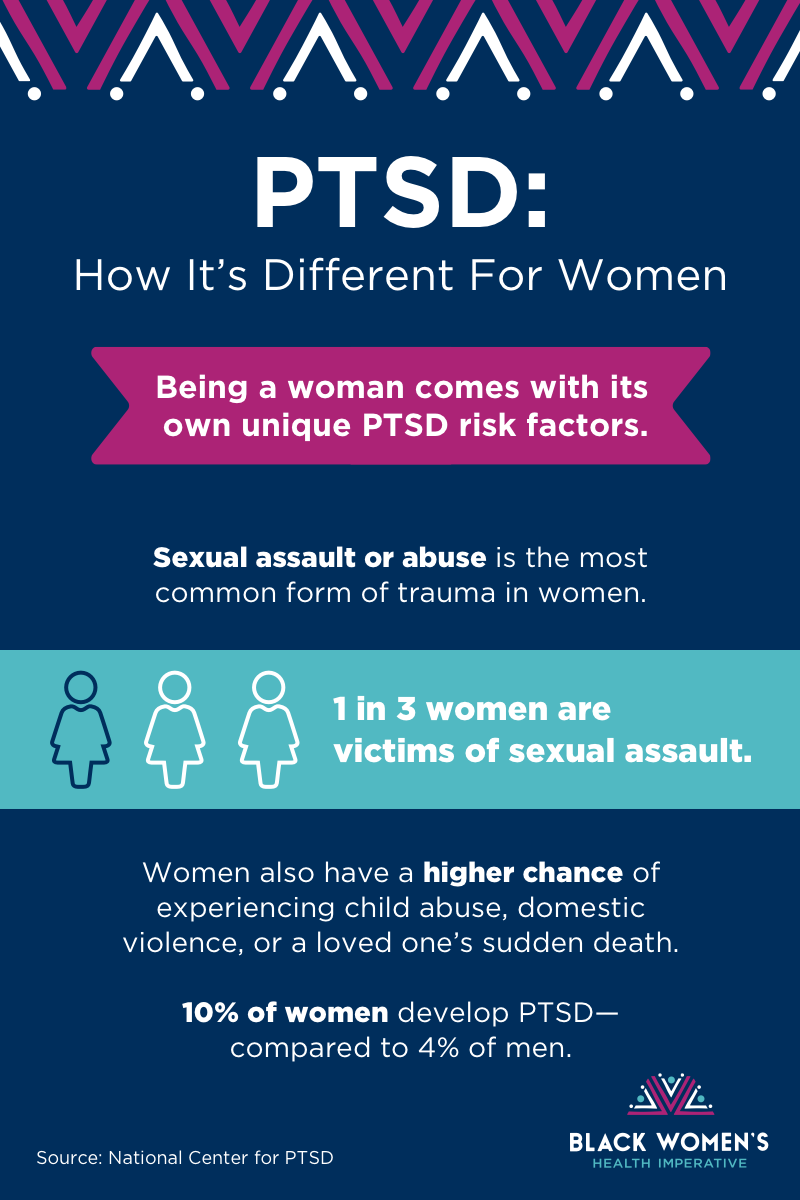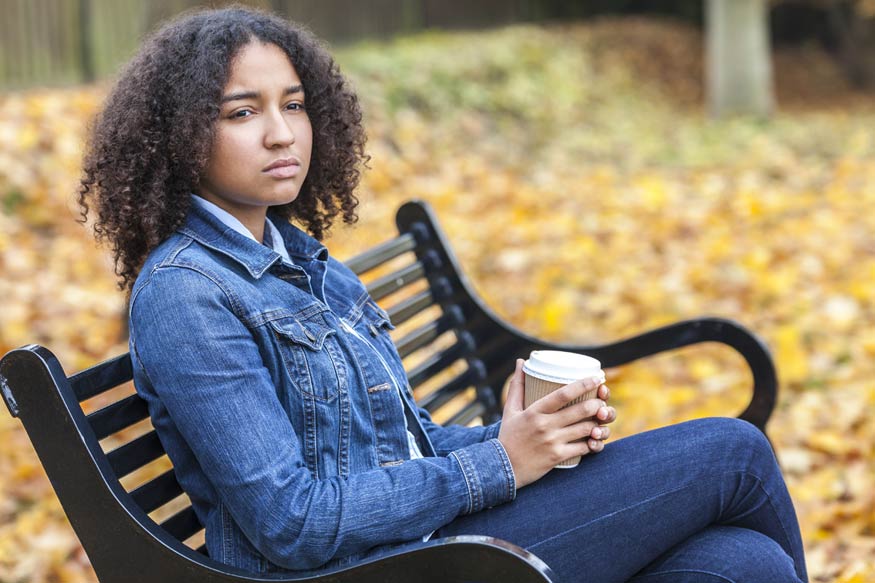Post-traumatic stress disorder—usually referred to as simply PTSD—is not just an issue for military veterans. The truth is that trauma doesn’t stay confined to combat zones.
In fact, traumatic events can happen way closer to home than we’d like them to. And these events can take a serious toll on your mental health.
Knowing what PTSD is—recognizing the signs and acknowledging the experiences that cause them—is a major first step in getting help. And getting help for PTSD can be the beginning of healing.
But both race and gender have their own unique impacts on Black women’s PTSD risk. So, here’s what you should know about Black women and PTSD.
What Is PTSD?
Post-traumatic stress disorder, or PTSD, is a mental health condition that can develop after experiencing or witnessing a traumatic event, such as:
- A natural disaster, like a hurricane, flood, fire, or tornado
- A serious accident, like a deadly car crash
- Violence, including abuse, rape, physical assault, etc.
- The sudden or unexpected death of a loved one
- Any other life-threatening situation
For people with PTSD, having lived through such extreme circumstances can lead to a wide range of symptoms.
Some people seem to “relive” the trauma through memories, flashbacks, or nightmares. Others appear emotionally distant or numb, and avoid situations or people that might be reminders of the traumatic event. Or they may feel on edge, anger easily, and struggle with sleep and concentration issues.
Race And PTSD: What’s The Connection?
PTSD impacts Black and white communities at different rates, in different ways, and for different reasons:
- 9.1% of African Americans have been diagnosed with PTSD—compared to 6.8% of non-Hispanic white Americans.
- African Americans—men and women, children and adults—have a higher chance of being victims of traumatic violent crime, which makes meeting the criteria for a PTSD diagnosis more likely.
- Repeated exposure to racism can also increase a person’s risk of developing PTSD.

How Is PTSD Treated?
Treating PTSD is all about finding ways to cope with the symptoms so that they don’t interfere with your daily life. Treatment for PTSD can include:
- Medication
- Therapy
- Self-management strategies—like mindfulness—that can help during flashbacks
- Service animals
Share this page with the women in your life who might be struggling to put a name to what they’re living with. Together, we can spread the word about PTSD in Black women. And by spreading the word, we can start spreading hope and healing.


